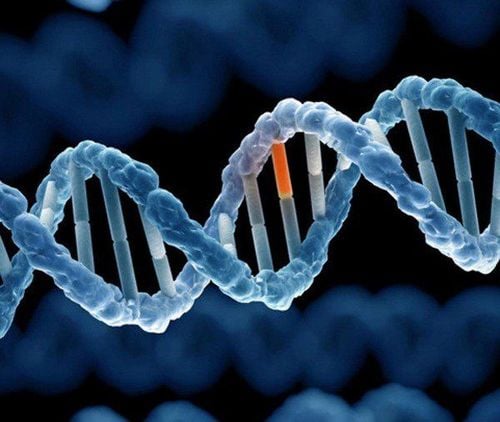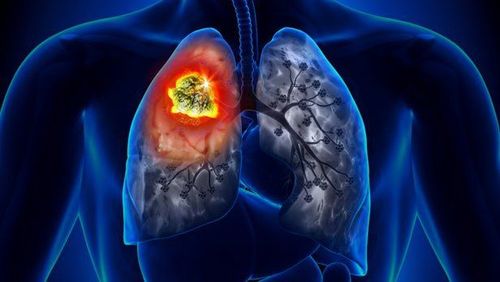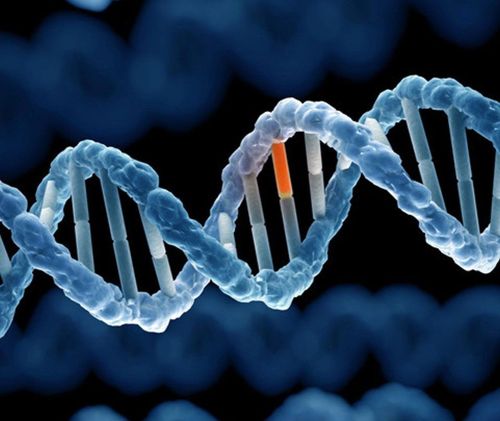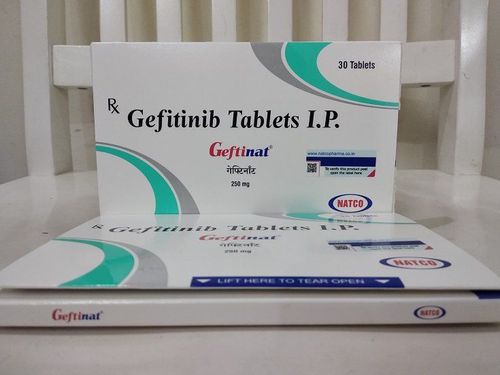This is an automatically translated article.
Posted by Master, Doctor Mai Vien Phuong - Department of Examination & Internal Medicine - Vinmec Central Park International General Hospital
Certain gene mutations are associated with non-small cell lung cancer (NSCLC). Having one of these mutations can affect the type of treatment your doctor recommends.
1. Some gene mutations are linked to lung cancer
Gene mutations can prevent DNA from repairing itself. They can also allow cells to grow uncontrollably or live too long. Eventually, those extra cells can form tumors, which is how cancer starts.
Germline versus somatic mutations
The gene mutations that cause lung cancer can occur in one of two different ways.
Somatic mutations are acquired mutations. They are the most common cause of cancer.
They happen when you are exposed to chemicals, tobacco, UV radiation, viruses and other harmful substances throughout your life.
A gene mutation is an inherited mutation. They are passed from mother or father to child through eggs or sperm. In about 5 to 10 percent of all cancers are inherited.
See more >> Applications of high-performance next-generation gene sequencing (NGS) technology
2. Types of gene mutations in lung cancer
Several different gene mutations help non-small cell lung cancer (NSCLC) spread and grow. Here are some of the most common gene mutations:
TP53
The TP53 gene is responsible for the production of the tumor p53 protein. This protein monitors cells for DNA damage and acts as a tumor suppressor. That means it keeps damaged cells from growing too quickly or out of control.
TP53 mutations are common in cancers and are found in about 50 percent of all NSCLC. They are commonly acquired and occur in both smokers and never-smokers.
Research shows that TP53 mutation in combination with EGFR, ALK or ROS1 gene mutations is associated with shorter survival time.
There is debate about whether people with cancer should always be screened for TP53 gene mutations as there is no targeted therapy to treat this mutation yet.
Research for targeted TP53 therapies is underway.
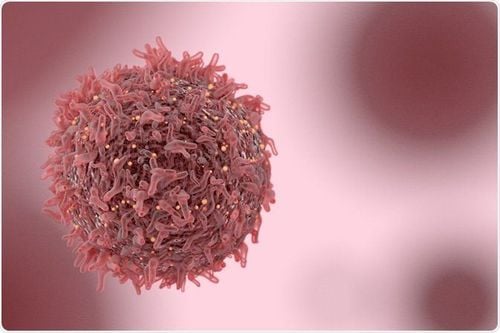
KRAS
KRAS gene mutations are found in approximately 30% of all NSCLCs. It is more common in smokers. The outlook for people with this type of genetic change is not as good as for those without it.
EGFR
Epidermal growth factor receptor (EGFR) is a protein on the surface of cells that helps them grow and divide. Some NSCLC cells have too much of this protein, which causes them to grow faster than normal.
Up to 23 percent of NSCLC tumors contain EGFR mutations. These mutations are more common in certain groups of people, including women and non-smokers.
ALK
About 5% of NSCLC tumors have a mutation in the non-myeloid lymphoma kinase (ALK) gene. This change is common in young and non-smokers. It allows cancer cells to grow and spread.
MET and METex14
The MET gene is altered in up to 5 percent of all NSCLCs. MET-positive lung cancers tend to be more aggressive than those without this mutation.
MET exon 14 knockout (METex14) is a type of MET mutation that is associated with approximately 3 to 4 percent of NSCLCs.
BRAF
About 3 to 4 percent of NSCLCs test positive for a BRAF mutation. Most people with these mutations are current or former smokers. These mutations are also more common in women than men.
ROS1
This mutation affects 1 to 2 percent of NSCLC tumors. It is usually found in people who are younger and have not smoked.
ROS1-positive cancers can be more aggressive and can metastasize to areas such as the brain and bones.
Some of the less common mutations associated with NSCLC include:
NRAS PIK3CA RET NTRK HER2
3. Check for genetic mutations
When you are first diagnosed with NSCLC, your doctor may test you for certain gene mutations.
These tests are called molecular tests, biomarkers, or genetic tests. They give your doctor a genomic profile of your tumor.
Knowing if you have one of these mutations will help your doctor figure out which treatment might work best for you. The targeted treatment works on cancers with EGFR, KRAS, ALK, and other gene mutations.
Genetic tests use a sample of tissue from your tumor that your doctor removes during the biopsy. The tissue sample is sent to a laboratory for testing. Blood tests can also detect mutations in the EGFR gene.
It may take 1 to 2 weeks to receive your results.
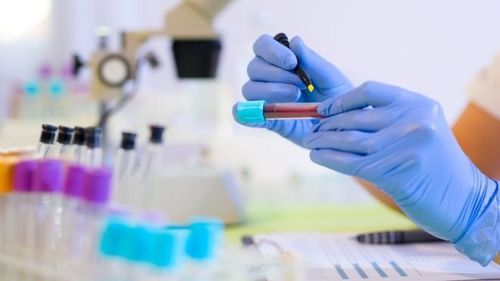
4. Treatment of Specific Mutations
The treatment your doctor recommends is based on your genetic test results, as well as the type and stage of your cancer.
Certain drugs target the treatment of NSCLC gene mutations. You can get these as a single treatment. They are also combined with chemotherapy, another targeted therapy, or other lung cancer treatments.
EGFR inhibitors block signals from the EGFR protein, which helps cancers with this mutated form to grow. This class of drugs includes:
Afatinib (Gilotrif) Dacomitinib (Vizimpro) Erlotinib (Tarceva) Gefitinib (Iressa) Necitumumab (Portrait) Osimertinib (Tagrisso) Drugs that target ALK gene mutations include:
Alectinib (Alecensa) Brigatinib (Alunbrig) ) Ceritinib (Zykadia) Crizotinib (Xalkori) Lorlatinib (Lorbrena) Targeted therapies for ROS-1-positive lung cancer include:
Ceritinib (Zykadia) Crizotinib (Xalkori) Entrectinib (Rozlytrek) Lorlatinib (Lorbrena) Drugs Targeting BRAF mutations include:
Dabrafenib (Tafinlar) Trametinib (Mekinist) The drug capmatinib (Tabrecta) for lung cancer with the METex14 mutation.
If there is currently no drug for your specific mutation, you may be eligible for a clinical trial. These studies test new targeted therapies.
Participating in a trial can give you access to a new drug for your NSCLC type before it is offered to others.

Conclusion
NSCLC treatment was once a one size fits all. Everyone gets the same regimen, which often involves chemotherapy.
Today, some treatments target specific gene mutations. Your doctor should check your tumor when you're diagnosed and let you know if you're a good candidate for a targeted drug.
You may be eligible for a clinical trial if there are currently no drugs available for your mutation.
Vinmec International General Hospital with many outstanding advantages such as: A team of highly qualified and experienced doctors; Having a full range of specialized facilities for diagnosis and staging before treatment: Endoscopy, CT scan, PET-CT scan, MRI, histopathological diagnosis, genetic - cytological testing... Having a full range of mainstream cancer treatment methods: surgery, radiation therapy, chemotherapy, stem cell transplant.... will help customers screen the disease effectively and have timely treatment if detected. present illness.
If you have a need for consultation and examination at Vinmec Hospitals of the national health system, please book an appointment on the website (vinmec.com) for service.
Please dial HOTLINE for more information or register for an appointment HERE. Download MyVinmec app to make appointments faster and to manage your bookings easily.
ReferencesAlvarez JGB, et al. (2019). Agents to treat BRAF -mutant lung cancer. ncbi.nlm.nih.gov/pmc/articles/PMC6419923/ The American Cancer Society medical and editorial content team. (2020). Targeted drug therapy for non-small cell lung cancer. cancer.org/cancer/lung-cancer/treating-non-small-cell/targeted-therapies.html Anguera G, et al. (2018). BRAF inhibitors in metastatic non-small cell lung cancer. 10.21037/jtd.2018.01.129 The genetics of cancer. (2018). cancer.net/navigating-cancer-care/cancer-basics/genetics/genetics-cancer Halvorsen AR, et al. (2016). TP53 mutation spectrum in smokers and never smoking lung cancer patients. DOI: 10.3389/fgene.2016,00085







